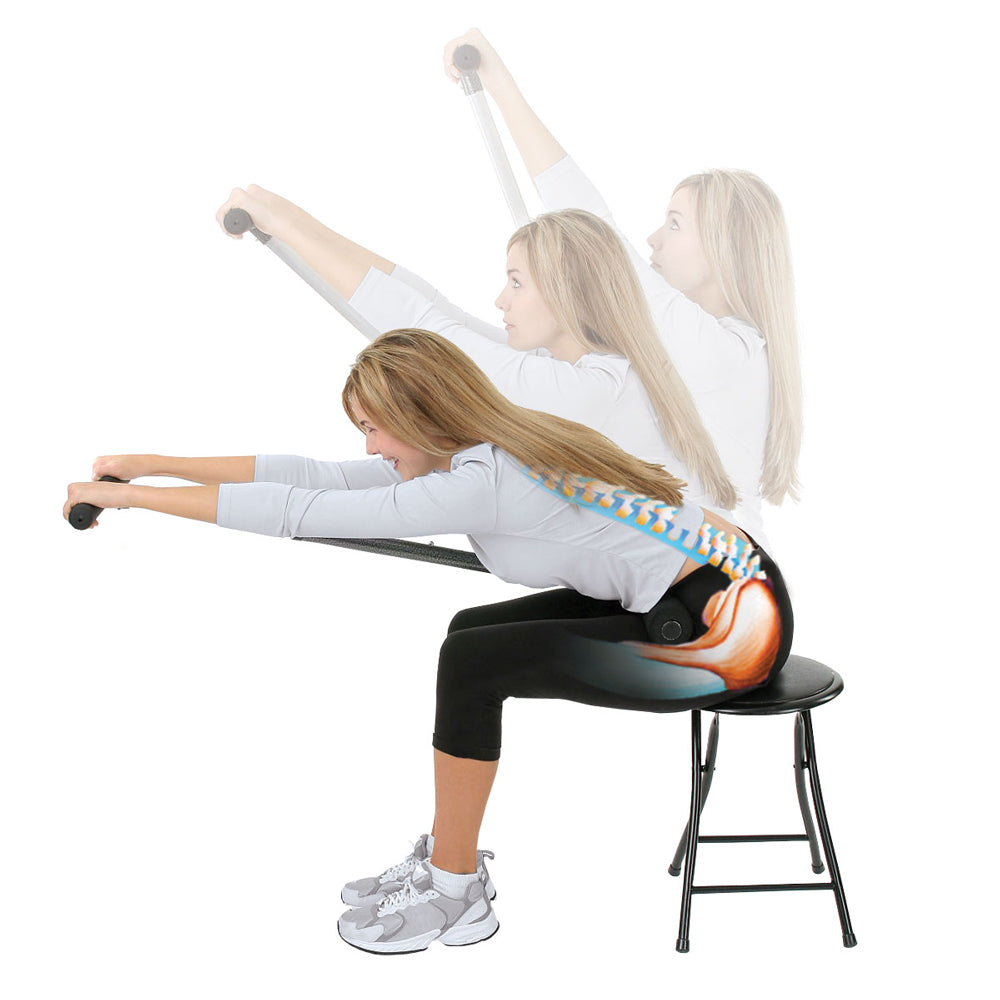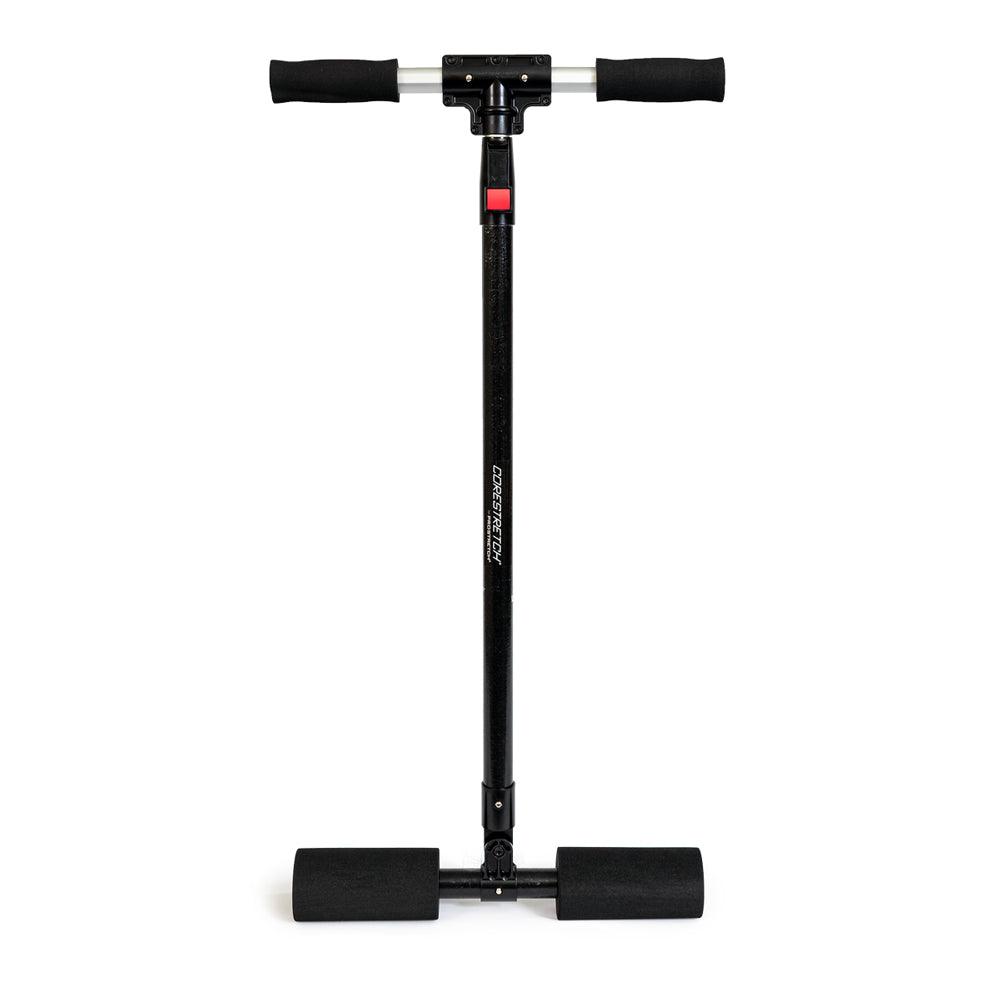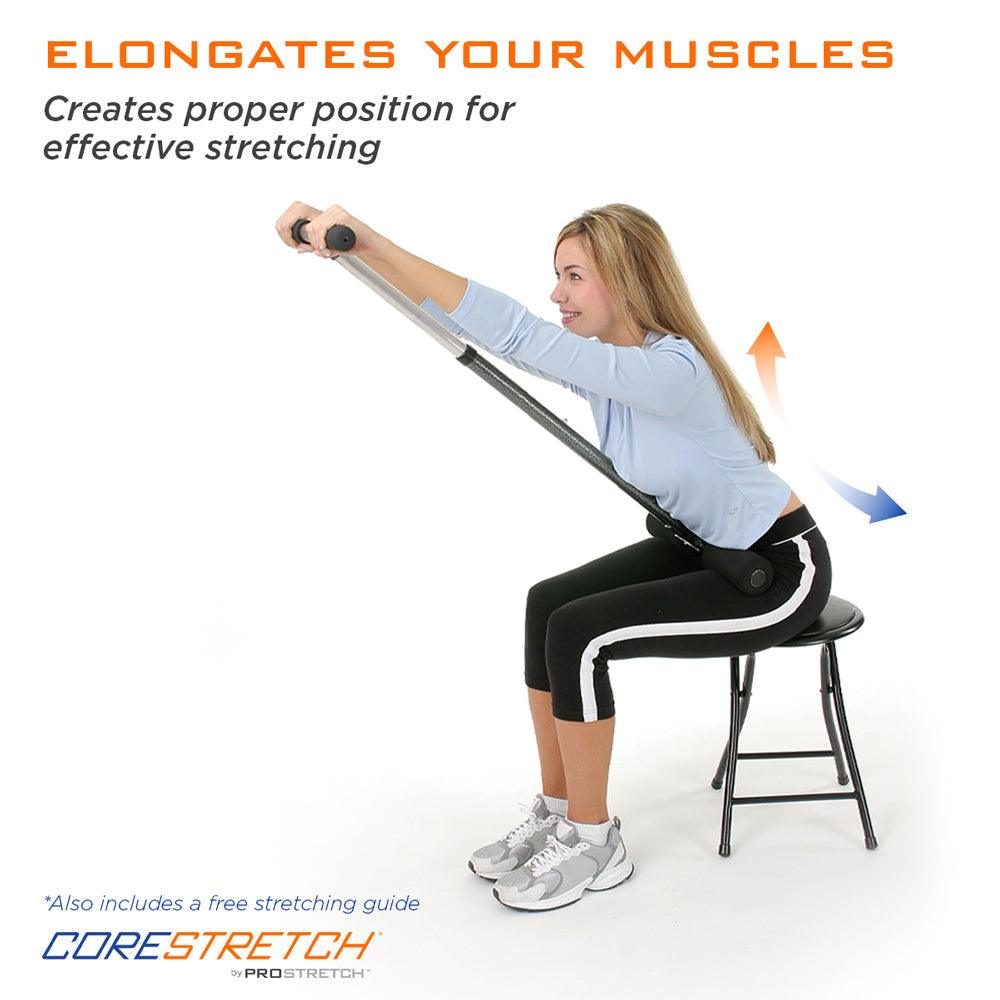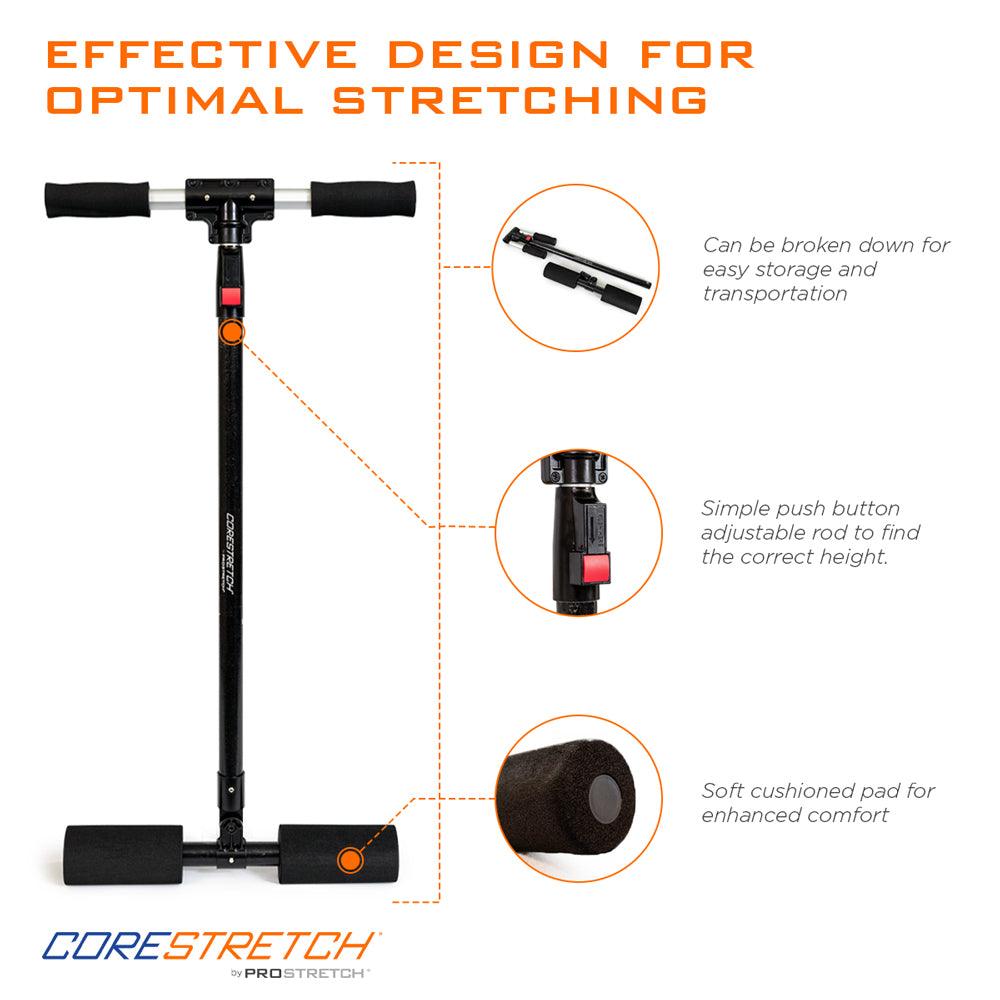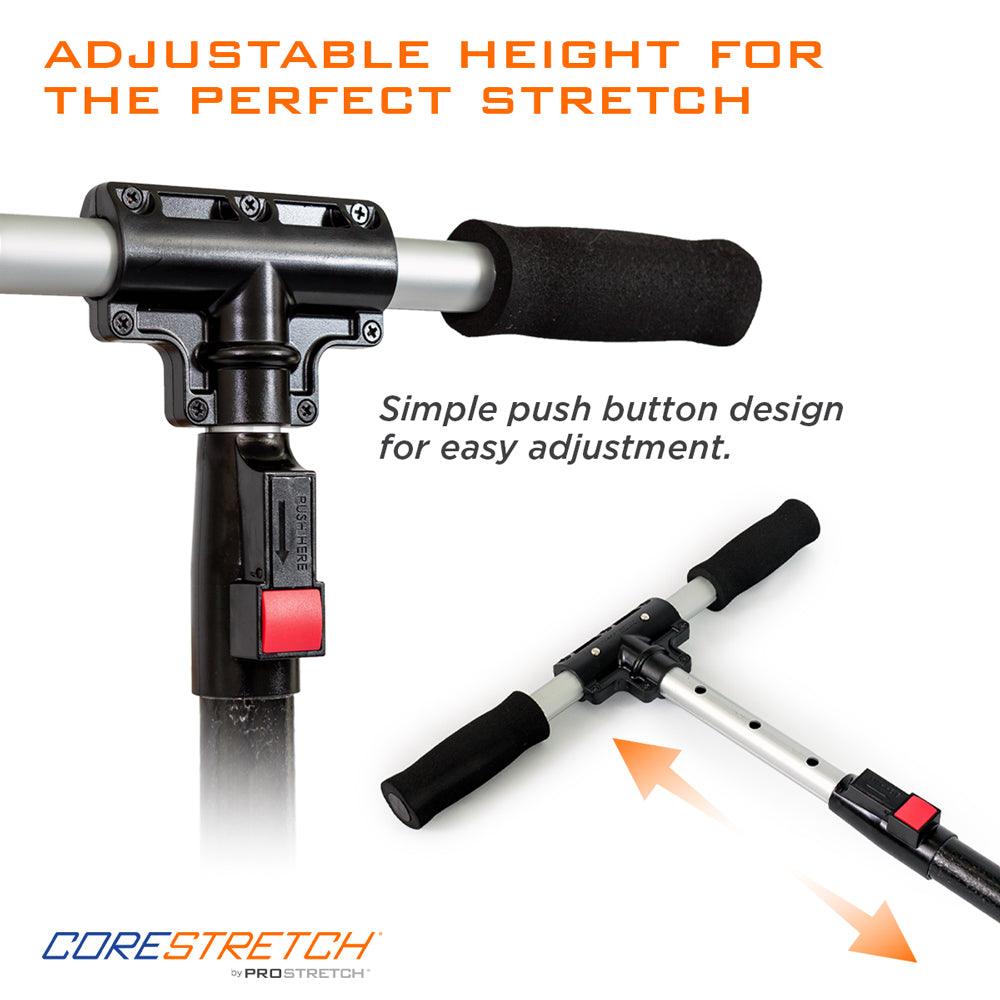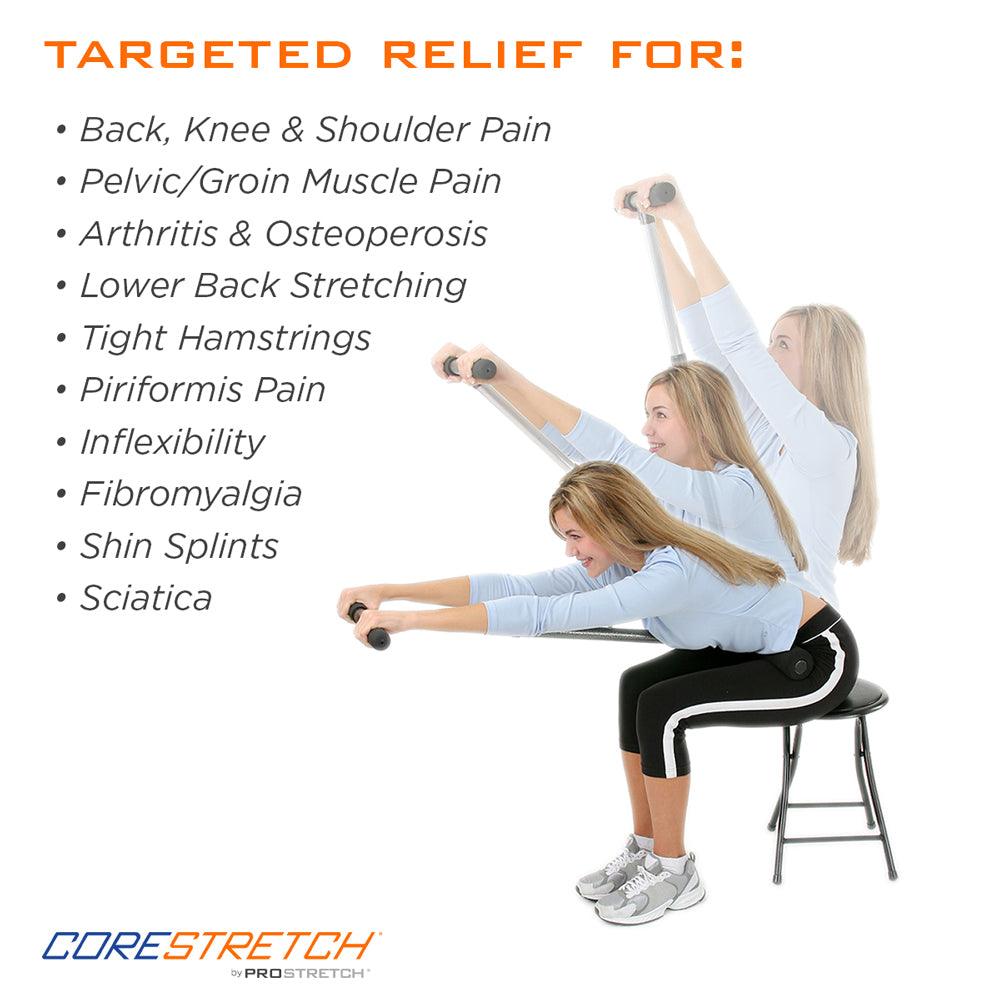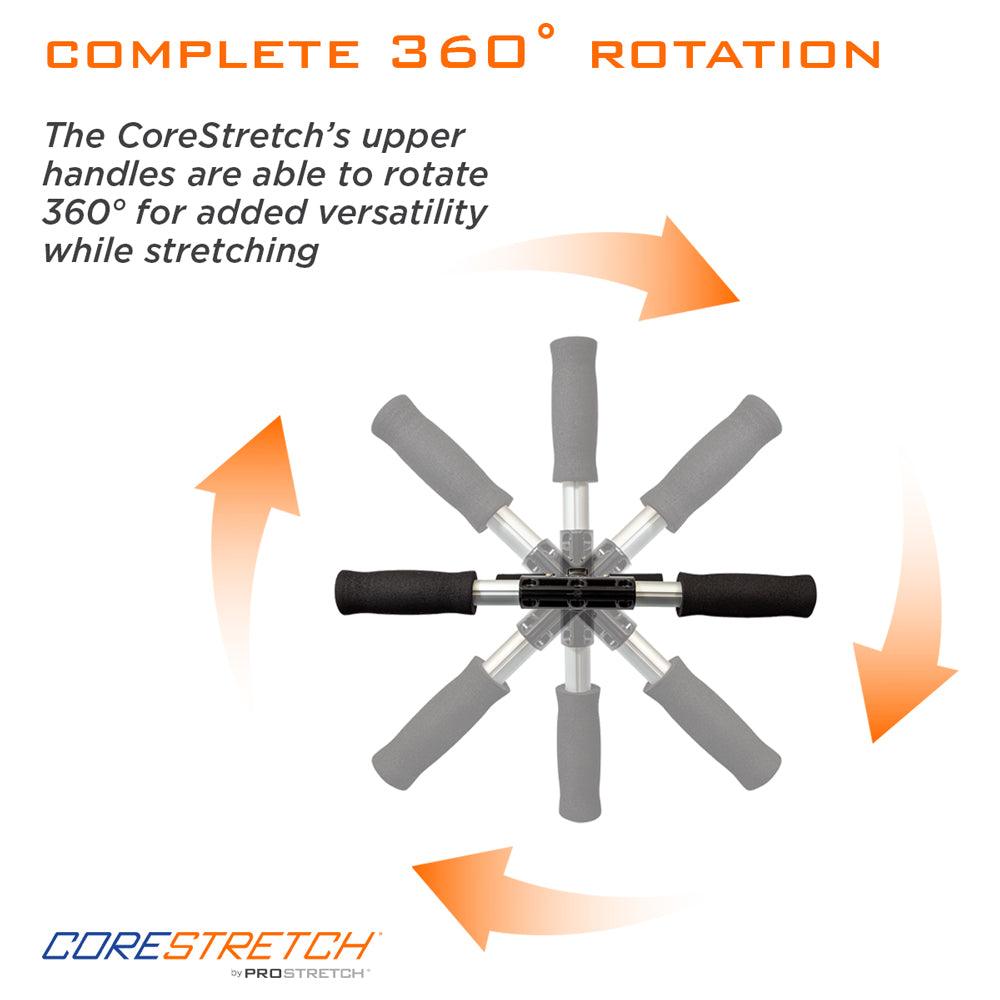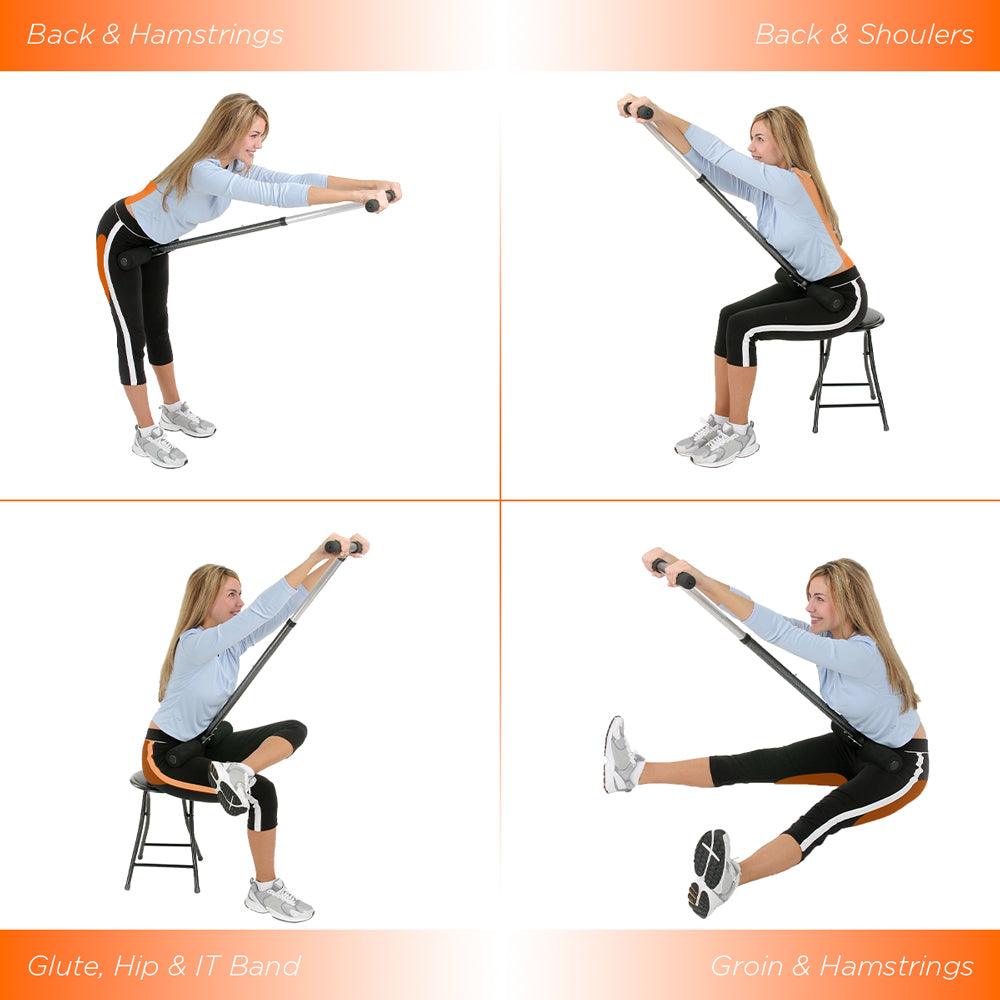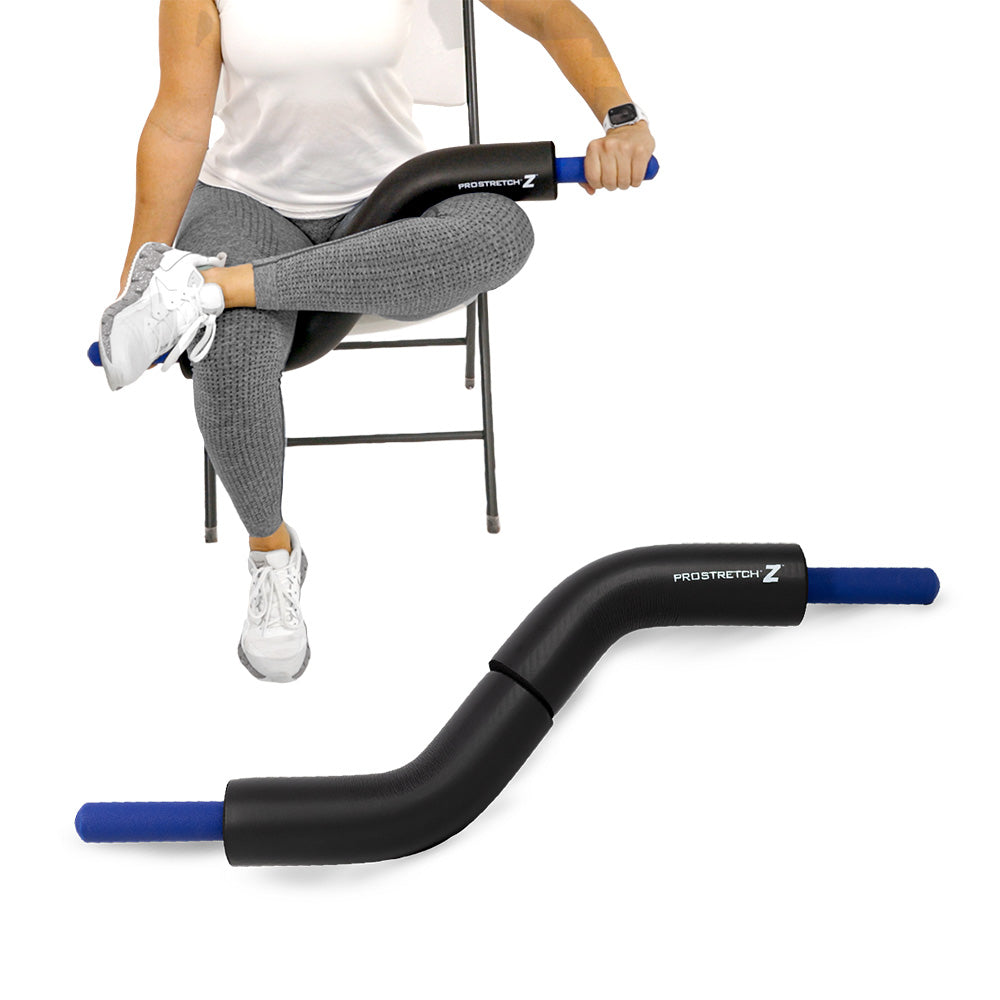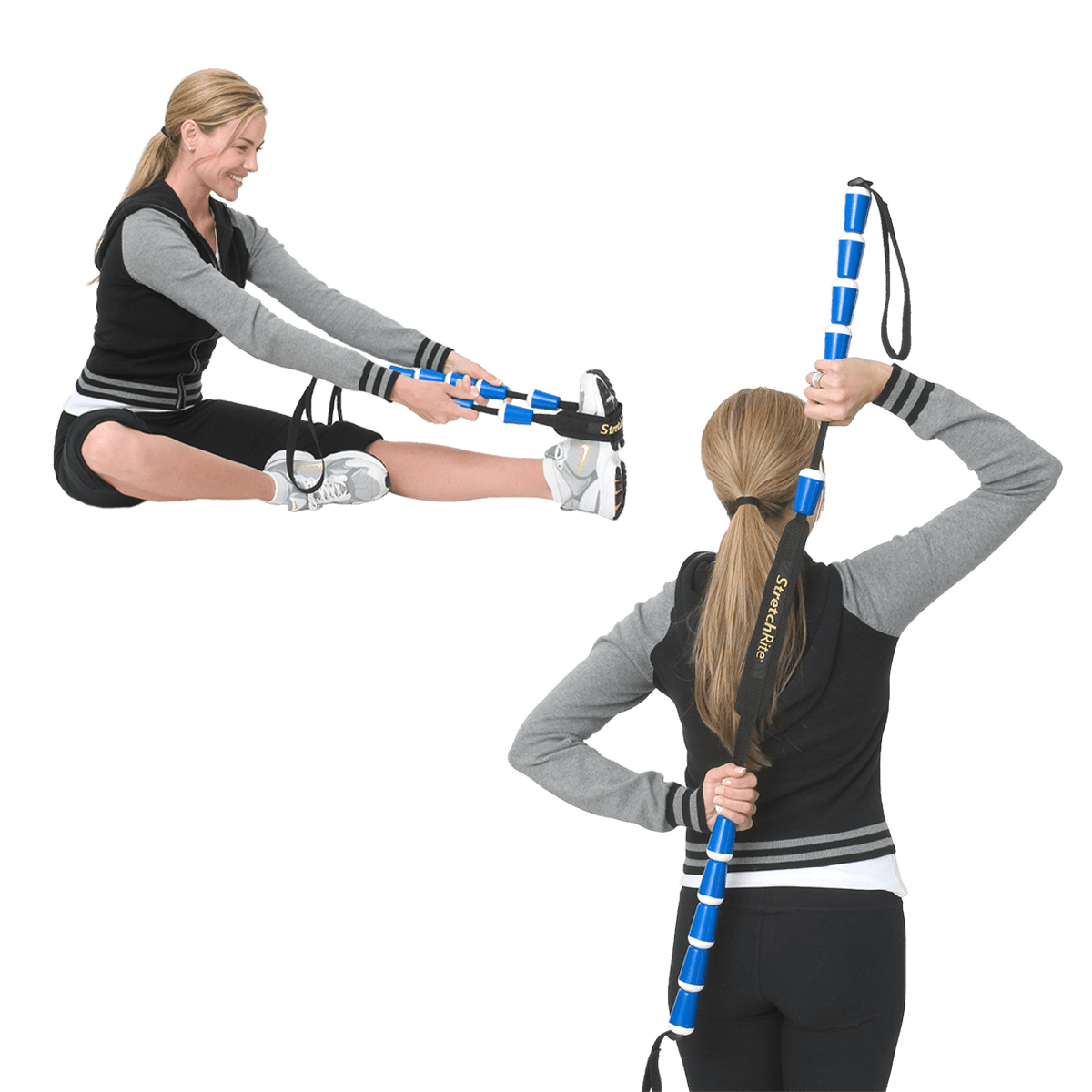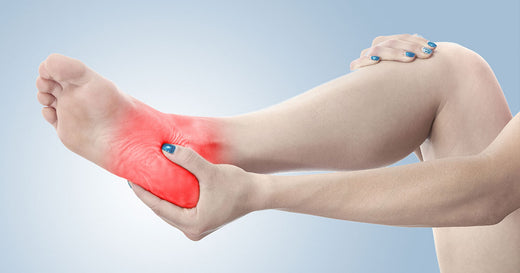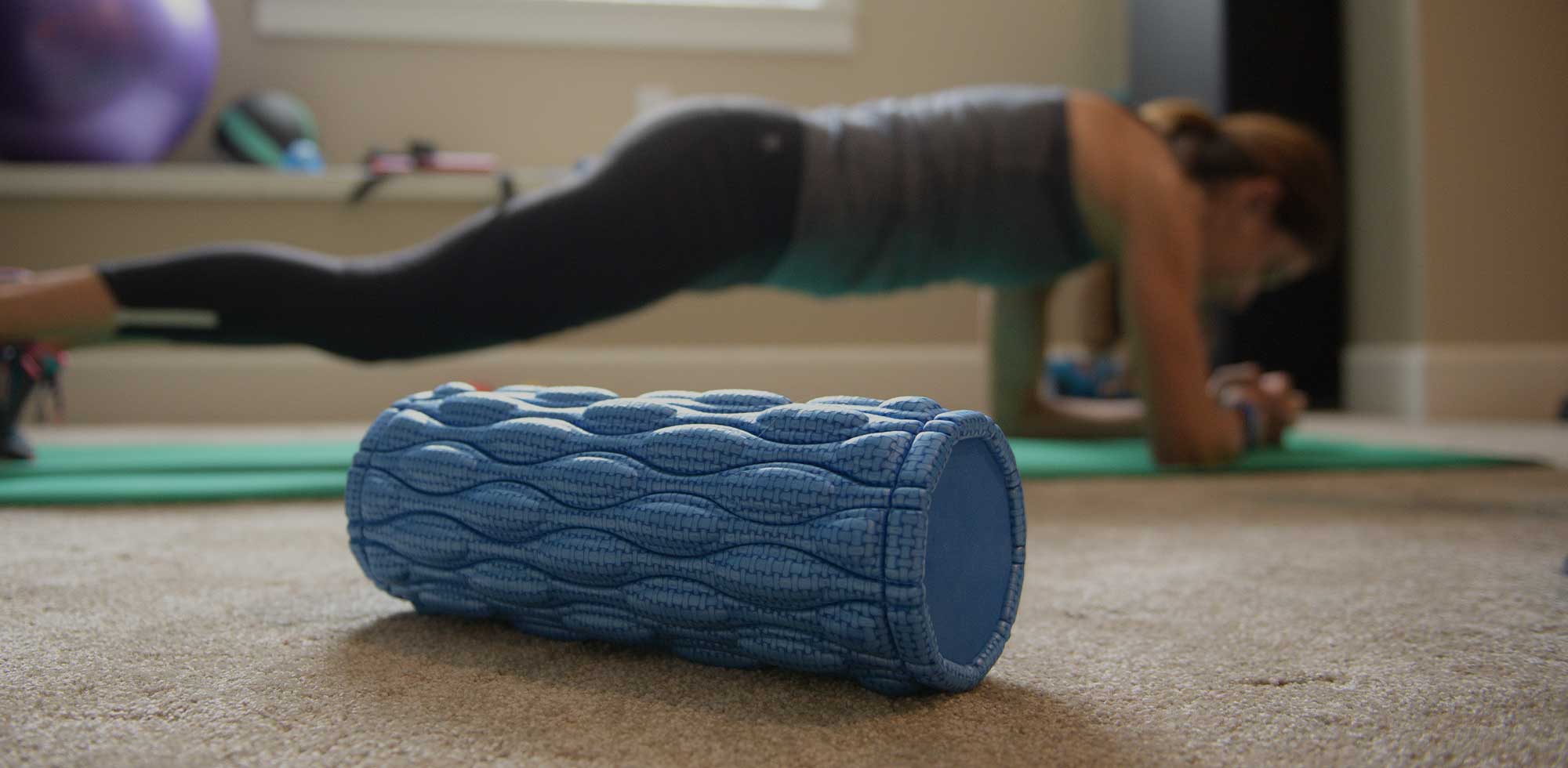It is important, whether you suffer from hip flexor pain, or are trying to prevent an injury, that you get the proper hip flexor stretch in before and after your exercise routine. Hip flexor exercises are the best way to prevent an injury; and after an injury, are the best way to get you back to better health. The following are some hip flexor exercises for you to try.
Table of contents:
- Understanding Hip Flexor Pain
- Stretching Exercises for Hip Flexor Pain Using CoreStretch® and StretchRite® by Medi-Dyne
- Stretching Exercises You Can Do at Home for Hip Flexor Pain
- How to Prevent Hip Flexor Pain?
Understanding Hip Flexor Pain
Hip flexor discomfort can result from various factors, often stemming from overuse, improper posture, or sudden movements that strain the muscles. The group of muscles known as the hip flexors, situated at the front of the hip, is accountable for lifting the knee towards the body and flexing at the waist. The key muscles involved are the iliopsoas, rectus femoris, and sartorius. These muscles play a vital role in numerous activities, including walking, running, sitting, and standing.
Discomfort in this area can vary from mild to intense, usually exacerbated by activities involving hip movement, such as climbing stairs, running, or prolonged sitting. Common causes include muscle strains, tendonitis, or hip impingement. Stretching exercises can be an effective solution for addressing hip flexor discomfort, easing pain, and enhancing flexibility.
Hip Flexor Stretching Exercises
Stretching Exercises for Hip Flexor Pain Using CoreStretch® and StretchRite® by Medi-Dyne
Medi-Dyne's CoreStretch and StretchRite are excellent tools for targeting and stretching the hip flexor muscles. These products are designed to enhance flexibility and reduce muscle tension, making them ideal for relieving hip flexor pain.
CoreStretch for Hip Flexor Pain:
The CoreStretch device allows you to perform deep, controlled stretches that target the hip flexors effectively. By providing adjustable resistance and support, it helps you safely stretch your muscles without overstraining them.

- Sitting in your chair, cross the leg of the hip you want to stretch and slowly lean forward.
- Hold the stretch position for 20-30 seconds, then release.
- Repeat 3-5 times.
StretchRite for Hip Flexor Pain:
StretchRite is a versatile stretching aid with multiple grip options that allow you to customize your stretch intensity. It’s perfect for stretching the hip flexors in a controlled manner, reducing tightness and pain.

- Lie on your back with your knees bent and feet flat on the floor.
- Loop the StretchRite around one foot, holding the handles in both hands.
- Gently pull your knee toward your chest, feeling the stretch in your hip flexor.
- Hold the stretch position for 20-30 seconds before switching to the other leg.
- Repeat 3-5 times.
Stretching Exercises You Can Do at Home for Hip Flexor Pain
In addition to using specialized tools like CoreStretch and StretchRite, there are simple exercises you can perform at home to relieve hip flexor pain.
Kneeling Hip Flexor Stretching
- Kneel on one knee with the other foot planted firmly in front of you at a 90-degree angle.
- Move your hips forward gently until you sense a stretch in the front of your hip.
- Hold for 20-30 seconds, then switch sides.
- Repeat 3-5 times.
Lunging Hip Flexor Stretching
- One step foot forward into a lunge position, with your back leg extended behind you.
- Slowly sink into the lunge until you feel a stretch in your hip flexor.
- Hold for 20-30 seconds, then switch legs.
- Repeat 3-5 times.
Seated Butterfly Stretch:
- Sit on the floor. Then, with your feet together and knees bent outward grasp your feet with both hands.
- Press your knees toward the floor. You will feel a stretch in your hip flexors and inner thighs.
- Hold for 20-30 seconds, then release.
- Repeat 3-5 times.
How to Prevent Hip Flexor Pain?
Preventing hip flexor pain involves maintaining flexibility, strengthening the surrounding muscles, and incorporating proper warm-up routines before physical activities. Here are a few tips:
- Stretch Regularly: Incorporate hip flexor stretching exercises into your daily stretching routine, especially if you sit for long periods. Stretching will keep your muscles flexible and reduce the risk of pain.
- Strengthen Your Core and Hip Muscles: Strengthening exercises such as leg raises, bridges, and planks can help stabilize your hips and improve posture, reducing the likelihood of hip flexor pain.
- Warm-Up Before Exercise: Before you engage in any physical activity like running or sports, warm up your muscles with dynamic stretching exercises or light cardio to prevent strains.
- Practice Good Posture: Having bad posture may lead to tightness in the hip flexors. Make sure to maintain proper alignment when sitting and standing, and check that your hips are not overly flexed.
By incorporating these strategies and exercises into your routine, you can effectively manage and prevent hip flexor pain, improving your overall mobility and comfort.
Conclusion
By incorporating these strategies and exercises into your routine, you can effectively manage and prevent hip flexor pain, improving your overall mobility and comfort.
Hip flexor discomfort is frequently experienced due to muscle strain or tightness in the front of the hip. This write-up delves into successful stretching methods employing CoreStretch and StretchRite, in addition to home-based exercises and preventive recommendations, to alleviate pain and enhance flexibility.
PLEASE NOTE: The information on this website and article is for information only and should not be used as a substitute for consulting your doctor. Consult your doctor for proper diagnosis and rehabilitation.





